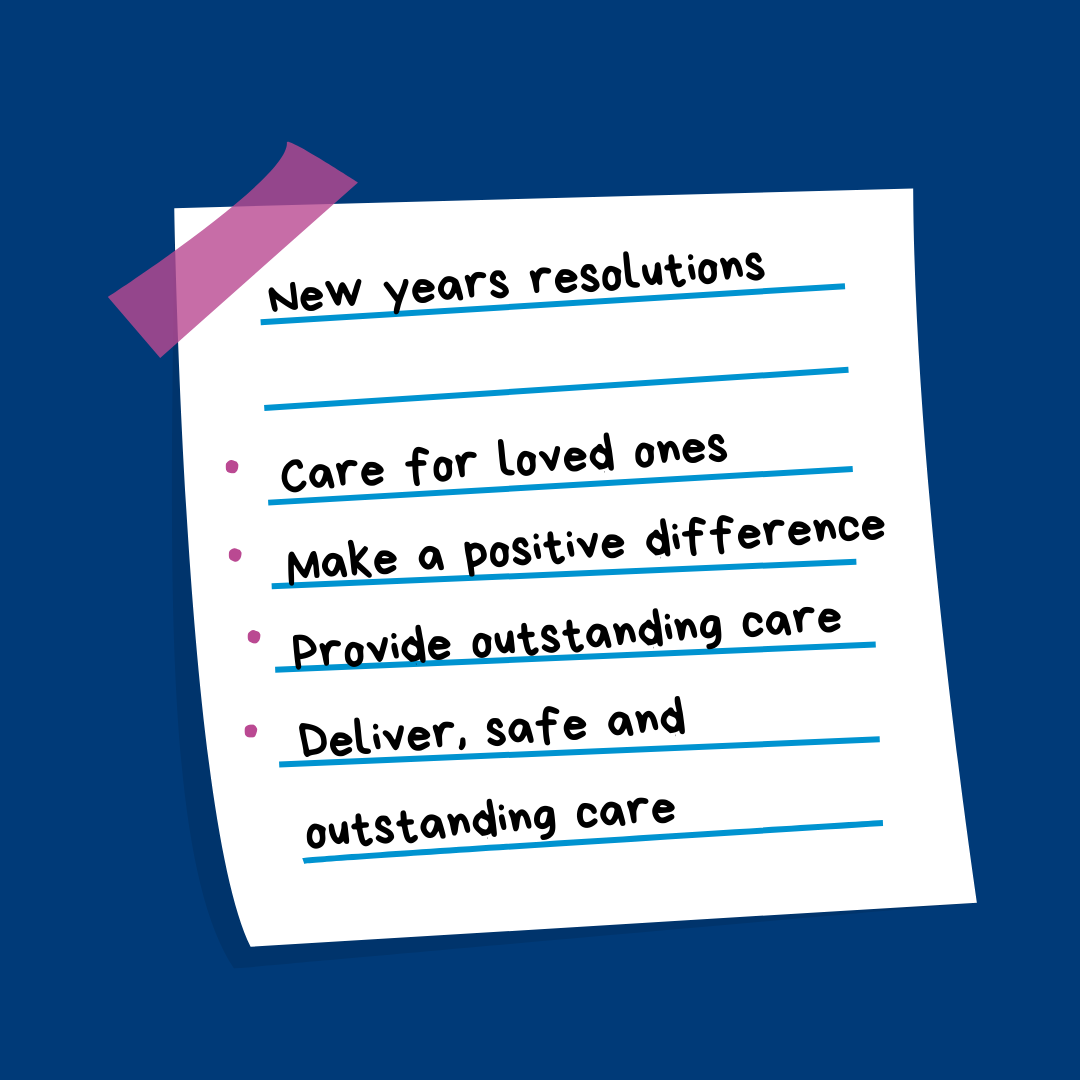New Year Goals for Loved Ones: A Guide for Carers
Since the New Year has arrived, it is the perfect time for carers to set goals that prioritise the health and well-being of their loved ones receiving care at home.
While resolutions often revolve around personal changes, setting goals for those under our care is equally crucial. These goals can shape a more fulfilling and healthier journey for our loved ones. Here is a guide to help carers navigate this process and create meaningful resolutions for their care recipients.
This may be a good activity to do with your loved ones, sitting and setting goals with them can motivate them, help them see what they are capable of!
Reflecting on Progress
Before diving into the new resolutions, take a moment to reflect on the progress made in the previous year. Acknowledge achievements, no matter how small, and recognise the efforts put into improving the quality of care. Reflecting on challenges faced can also offer insights into areas that require attention in the upcoming year.
Collaborative Goal Setting
Involve your loved one in the goal-setting process. Their input is invaluable as it ensures that the goals align with their preferences, needs, and capabilities. This collaboration fosters a sense of empowerment and autonomy, promoting a more positive and inclusive care dynamic.
Health and Wellness Goals
Physical Activity and Exercise: Set achievable fitness goals tailored to your loved one’s abilities. This might include daily walks, gentle stretching routines, or activities recommended by healthcare professionals to maintain mobility and strength.
- Nutrition and Diet: Aim for a well-balanced diet by incorporating more fruits, vegetables, and whole grains. Consider consulting a nutritionist to create a meal plan that suits your loved one's dietary requirements.
- Medication Management: Organise medications effectively, set reminders for doses, and ensure regular medical check-ups to monitor health conditions and make any necessary adjustments.
Emotional and Mental Well-being
- Social Engagement: Encourage social interactions to combat feelings of isolation. Plan activities that involve family, friends, or social groups that your loved one enjoys.
- Mindfulness and Relaxation: Introduce relaxation techniques such as meditation, deep breathing exercises, or hobbies that promote a sense of calm and reduce stress. A walk is a highly recommended type of mindfulness, not only does it release endorphins from exercise, but it helps you be in fresh air and around nature, releasing many happy hormones.
Home Environment and Safety
- Home Modifications: Assess the living space for safety hazards and make necessary modifications to ensure a secure environment.
- Accessibility: Enhance accessibility by organising items within easy reach and creating clear pathways for movement, especially if your loved one has mobility challenges.
Tracking Progress and Adjusting Goals
Regularly review and track the progress of these goals. Celebrate achievements and adjust goals if necessary. Stay flexible, as the needs and abilities of your loved one may change over time.
Your loved one has walked an extra 5 minutes on their walk, reward them!
If you are needing some respite care and a break, visit here for more information.

Setting New Year goals for loved ones under care is a thoughtful and initiative-taking approach to enhancing their quality of life. Remember, these goals are meant to inspire positive changes, foster well-being, and create a nurturing environment. As carers, your dedication to improving the lives of your loved ones is the cornerstone of these resolutions.
We're here for you!
Whether you are lookin for home care for your loved one or some respite so you can enjoy your own time, contact us to see more...

How to find the right care for you or your relative
1. Find your local office
Bluebird Care delivers care from locally based offices, find yours to start your care journey today.
2. Get in touch with us
Fill in our call back form or give us a call to find out how we can help you.
3. Assessment
We’ll come out to you to find out what you or your loved one needs to help stay independent at home.
4. Care team chosen & care starts
You'll be cared for by our specially trained team to support you to remain at home for as long as possible.

